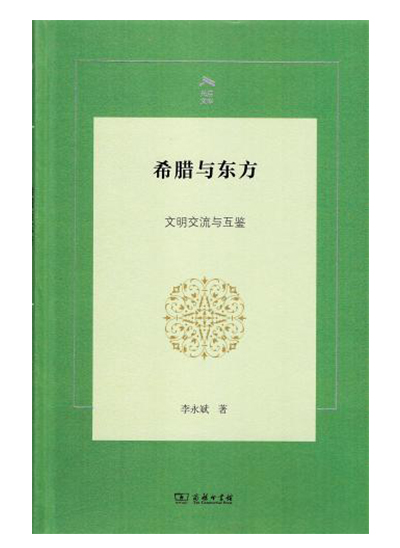Ancient exchanges in the Mediterranean community

Greece and the East: Exchanges and Mutual Learning Between Civilizations
Greece and the East: Exchanges and Mutual Learning Between Civilizations, by Li Yongbin, a professor from the School of History at Capital Normal University (CNU), represents the first published monograph in China that systematically presents civilizational exchanges in the eastern Mediterranean from the late Bronze Age to the early Iron Age.
The original intention of the book is to clarify the role of West Asian and Egyptian elements in the rise and development of ancient Greek civilization. However, the author does not merely adopt the Greek perspective but explores the interactions between ancient Greek and Eastern civilizations from the broader context of the entire eastern Mediterranean region’s civilizational development. The author argues that the Western notion of the “Orient” is not just a matter of geographical positioning but is also a category for understanding the “Other,” often characterized by unrealistic conceptions and certain biases. He therefore calls for a research paradigm shift interpreting the relationship between eastern Mediterranean civilizations from the perspective of the Mediterranean community rather than solely from the viewpoints of ancient Egypt, West Asia, or Greece.
The author contends that at this time, the “Mediterranean community was mainly a community in the sense of civilizational exchanges, which did not alter the basic forms of social development, nor did it change the uniqueness of various civilizations involved.” “The independence and differentiation among these civilizations still far outweighted their commonalities, with localized exchanges occurring far more frequently than comprehensive interactions.”
Egypt and Mycenae, respectively, chiefly imported valuable items, which were more likely to be used in the ceremonial activities of the upper class than in daily life. The Phoenicians contributed their alphabet, along with various art and lifestyle items to the Greeks; however, their influence was mostly limited to the artistic realm, with limited cultural or political impact. Although the Homeric epics absorbed a great many elements from Eastern literature, even stories like that of “Zeus deceived” were re-adapted by the ancient Greeks, who incorporated their own concept of “anthropomorphism.”
The ancient Greeks, through maritime trade and cultural exchanges, “learned Eastern technique and artistry, absorbed Eastern myths and legends, and adopted Phoenician letters and writing.” However, all these elements were accepted only after the Greeks adapted them to their own needs, thereafter leading to the rapid development of Greek civilization. Regarding the fashionable “Orientalization revolution,” the author argues that although this concept helps to rectify the tendency of overemphasizing the uniqueness of ancient Greek civilization and redefines the understanding of its diverse origins, it contradicts the basic tenets of seeking truth in historiography and overestimates the influence of Eastern factors.
Yan Shaoxiang is a professor from the School of History at CNU.
Edited by YANG LANLAN
